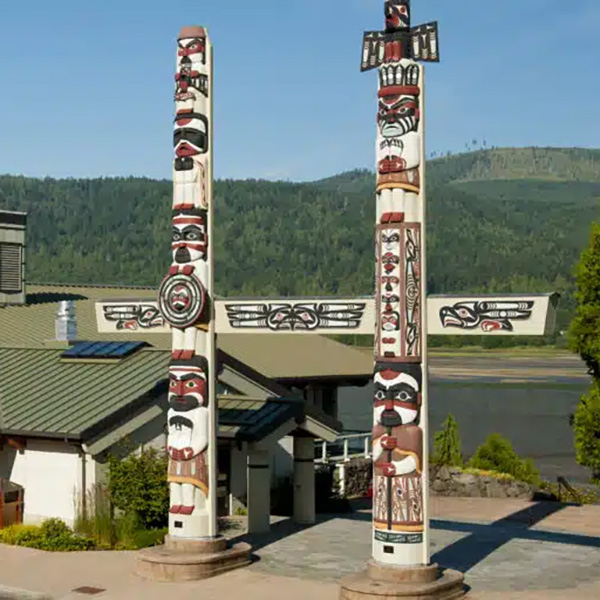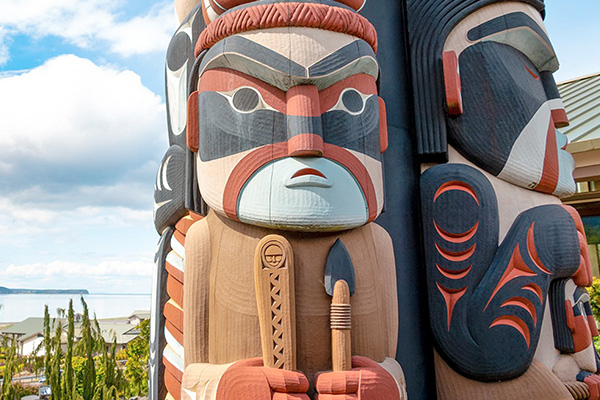Jamestown S'Klallam Tribe
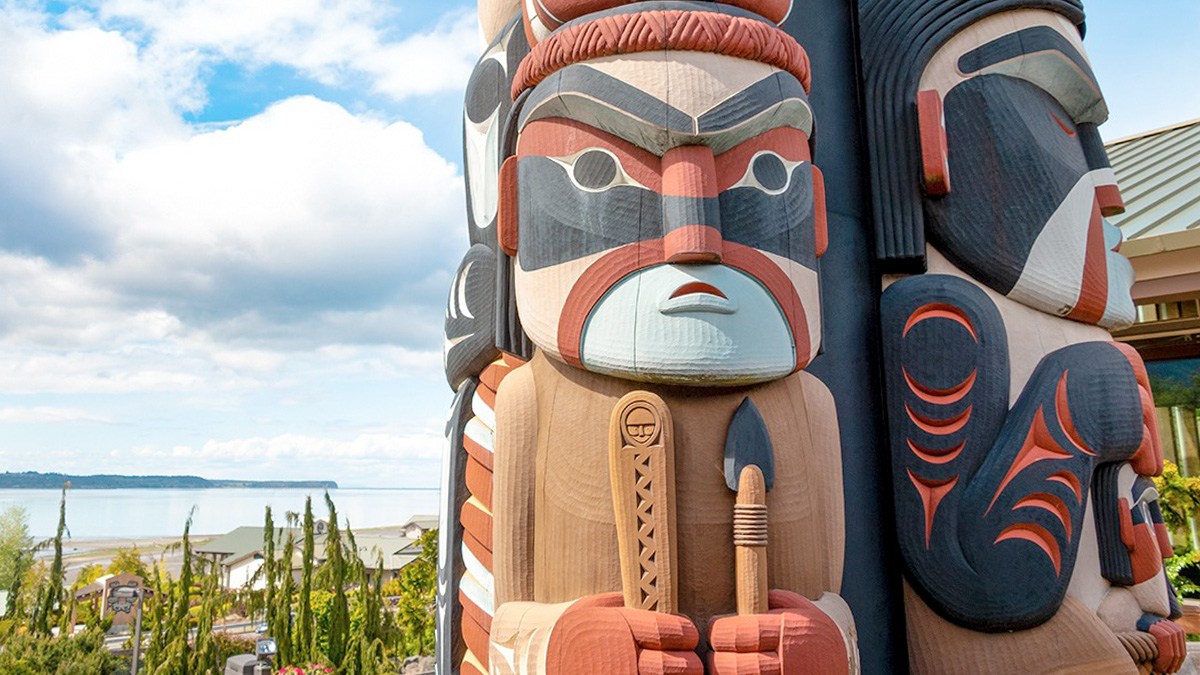
The S’Klallam people have a history dating back over 10,000 years. Their traditions, heritage, and stewardship have not only enriched their own people's lives, but also illuminated a path of unity and reverence for the natural world that resonates across the region. The Jamestown S’Klallam Tribe is one of three S’Klallam bands; the others are the Lower Elwha Klallam and the Port Gamble S’Klallam Tribes.
The S’Klallam Tribe entered the Point No Point Treaty with the United States in 1855 but resisted removal to the reservation of the Twana people at Skokomish. They remained in their traditional areas, and in 1874 the S’Klallams from the village at Dungeness pooled together $500 in gold coins and privately purchased the 210 acres of land, establishing Jamestown. In 1953, the federal government ceased to recognize the Jamestown S’Klallams as a tribe. After a long and tedious process, the Jamestown S’Klallam Tribe regained federal recognition as a tribe in 1981.
Throughout the years the Jamestown S’Klallam Tribe has founded numerous enterprises that support their citizens while protecting the heritage and natural resources of the area, and their significance extends far beyond their borders. Currently the Tribe is engaged in a diverse range of projects, encompassing environmental protection, cultural preservation, community enrichment, and economic development.
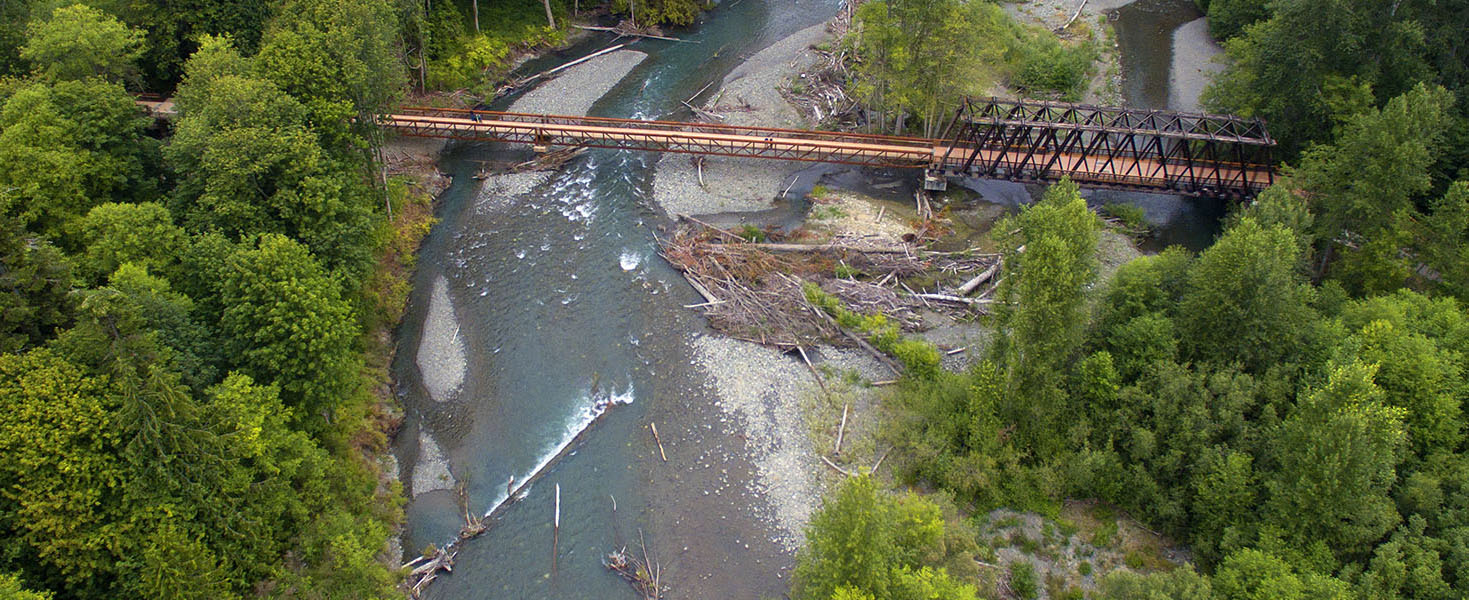
Nature Preservation
Preserving and protecting the natural resources of the area is an important part of the Tribe’s mission. This includes the restoration of Dungeness River, in partnership with the Dungeness River Nature Center. The recent project removed a levee south of the Railroad Bridge in Sequim, which allowed the river to recover a significant portion of its natural floodplain. To accommodate the river’s path, a new bridge had to be constructed. The expanded estuary allowed for new habitats for salmon spawning and rearing, as well as local wildlife and birdlife.
The Dungeness River Nature Center offers year-round nature programs for youth, families, and adults, fostering education and awareness of the region’s ecosystem.
“The Center helps people connect with our local ecosystem and learn the history between the Jamestown S’Klallam Tribe and the natural resources of the region,” said W. Ron Allen, tribal chair and CEO for the Jamestown S’Klallam Tribe.
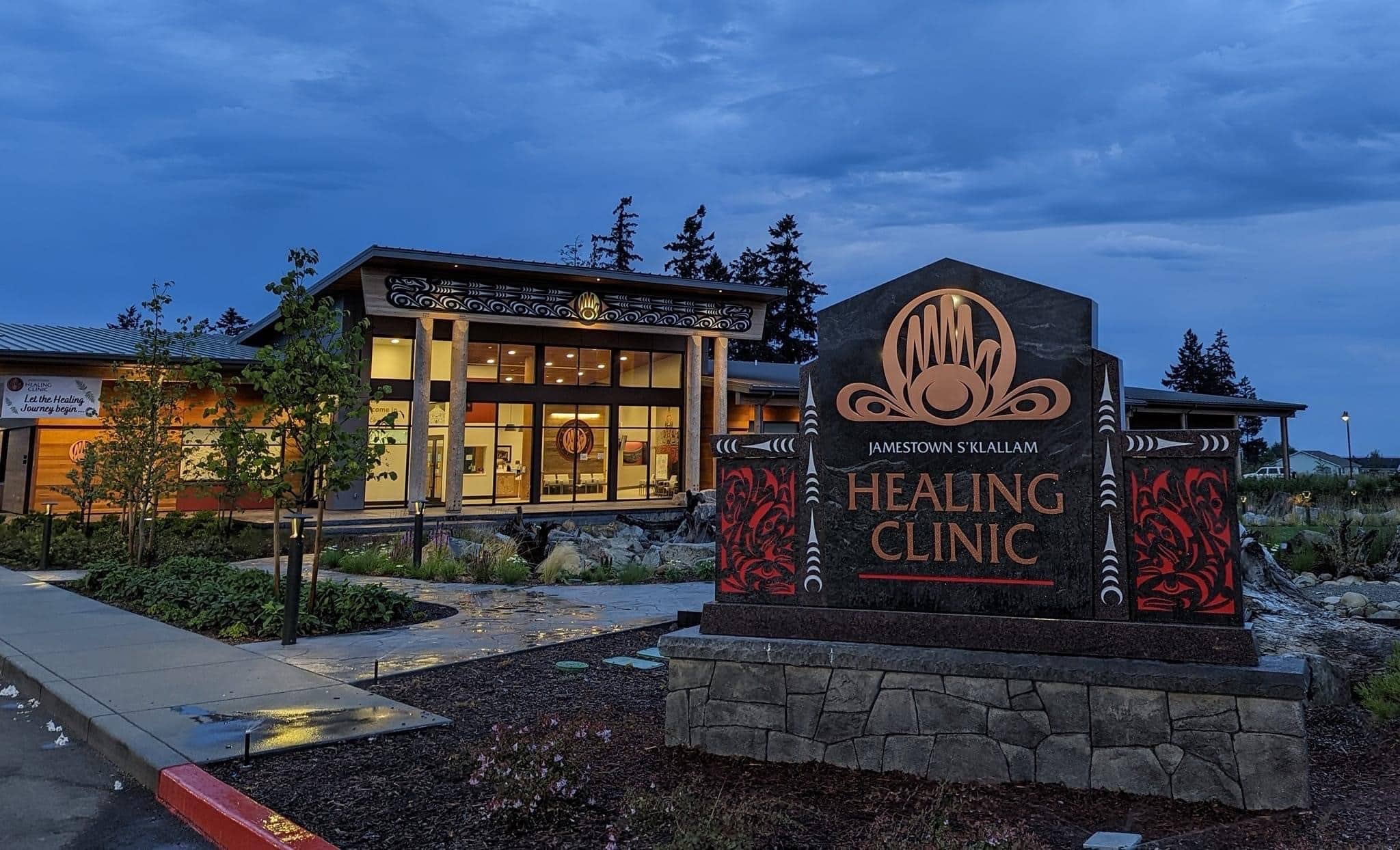
Healing Campus
The Jamestown S’Klallam Tribe runs several medical care facilities open to all, including a Family Health Clinic, Dental Clinic, and the recently opened Healing Clinic. The Healing Clinic provides holistic treatment, medication, and recovery services for opioid use disorders. Next door to the Healing Clinic, construction on a new mental health crisis center is planned to begin in 2024.
The new 16-bed clinic would offer inpatient services to patients in need of psychiatric evaluation, offering treatment for up to two weeks, with possible extension when needed. This much needed service would provide care to patients across the Olympic Peninsula.
Library & Cultural Center
Construction has already begun on a new library and cultural center, projected to open in 2024. The new library includes an audiovisual theater that can hold up to 1000 people.
“The new space is very exciting,” said Jackie Johnson, Tribal Communications and Publications Specialist for Jamestown. “We have room for exhibitions to showcase the culture and history of the S’Klallam people.”
The library offers collections of Native American authors and subjects, with a focus on the Pacific Northwest. For access to more comprehensive materials, the library is also in partnership with the North Olympic Library System.
Tribe Focus
For tribal citizens, the Jamestown S’Klallam Tribe offers many community programs, including culture and language classes, youth and elder programs, summer school, and activities for seniors like basket weaving and carving.
The Tribe also has a very strong college and vocational school scholarship program, that could cover up to 80% of tuition for tribal citizens seeking a degree.
"The Jamestown Tribe has a very strong self-reliance agenda,” added Allen. “First Fed has been very supportive of that ongoing agenda.”
Building Community with First Fed
First Fed has been a long-time partner of the Jamestown S’Klallam Tribe, supporting them with banking services, project financing, and community events.
“The Jamestown S’Klallam Tribe continues to have a wide-reaching positive impact on our community and the region,” said Matt Deines, CEO of First Fed. “We are honored to work with them on funding some of their capital projects.”
“Jamestown Tribe has banked with First Fed for over 25 years, and they have been an amazing partner in our endeavors,” said Allen. “We love working with them because they are really responsive and care about their customers.”
“We are happy to support the banking needs of many of the Jamestown Tribe’s enterprises and individual members,” said Robin Bookter, Branch Manager of First Fed at Sequim Avenue. “They are huge community advocates and support many local events and organizations.”
Loni Grinnell-Greninger, Jamestown S’Klallam Tribal Council Vice Chair, will be a featured speaker for the Resilience Story Hour at the First Fed Centennial Celebration.
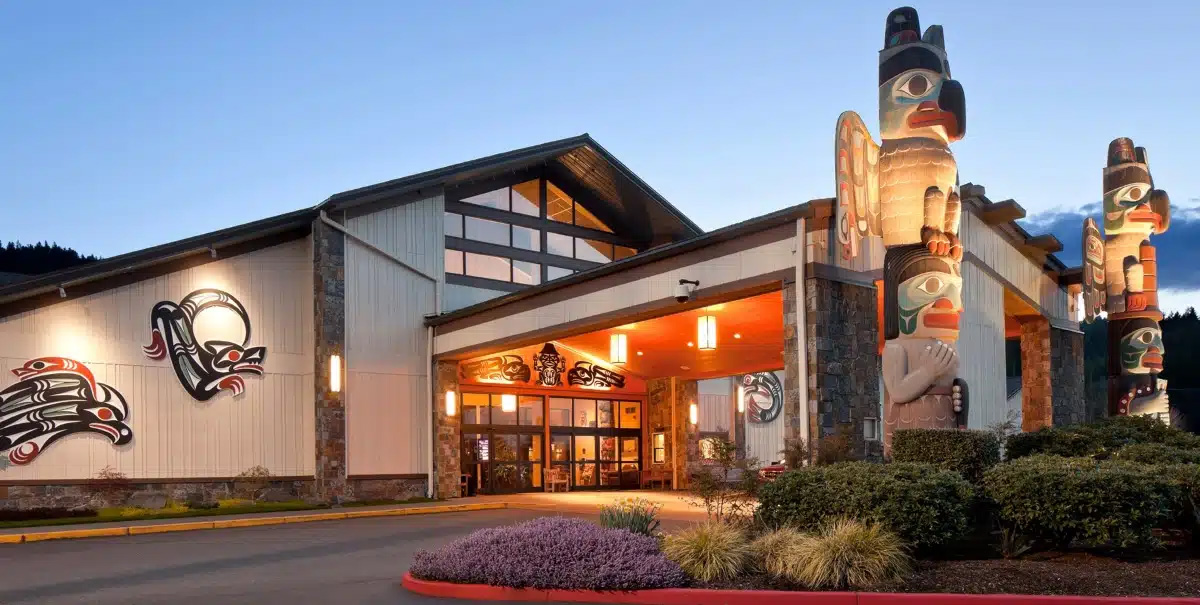
Visiting on the Peninsula
7 Cedars Hotel and Casino is a popular destination on the Peninsula and helps support the Jamestown S’Klallam Tribe’s endeavors. The buildings are designed with a Salish motif, and adorned with totem poles, an important representation of the Tribe’s culture.
Each winter holiday season, as you drive around the bend approaching 7 Cedars, the Tribe decorates the area with three and a half million lights—a sight not to be missed!
Visit their website to learn more about the Jamestown S’Klallam Tribe, and all the exciting community projects they have in progress.
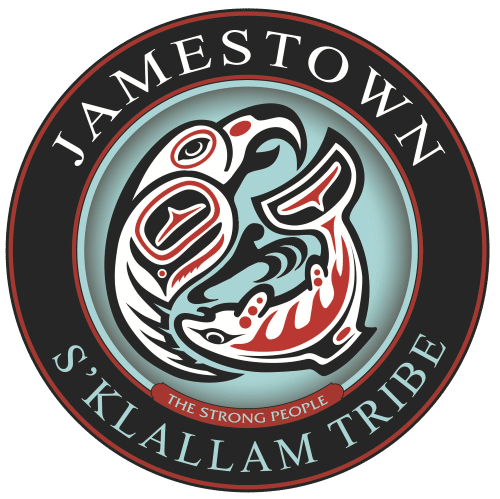
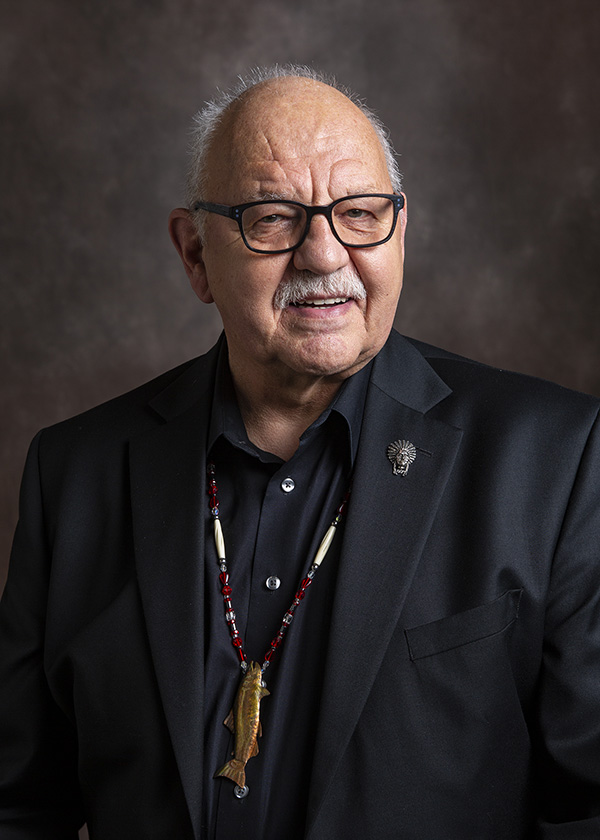
W. Ron Allen
Tribal Chair/CEO
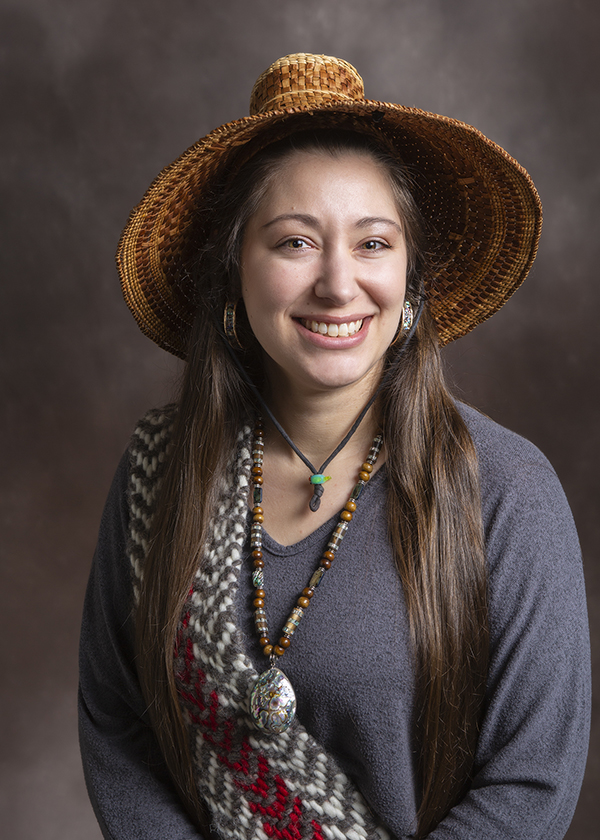
Loni Greninger
Tribal Council Vice Chair
Tribal Banking
We provide banking services to Tribes, their members, businesses, and organizations across Washington state.


